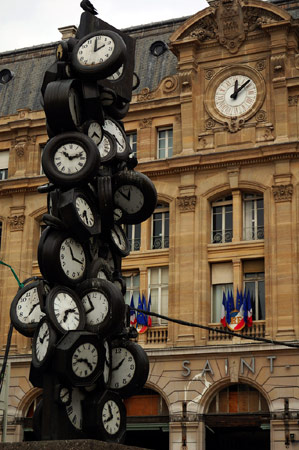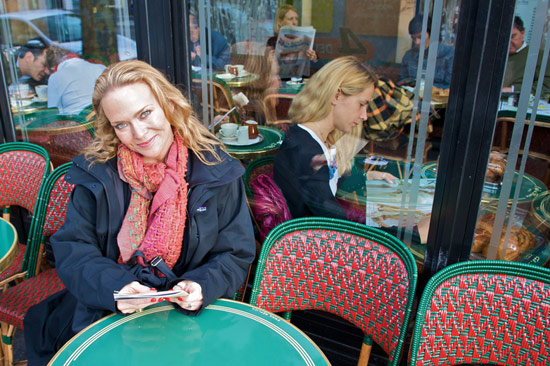Culture and Society: Time Orientation
Perception of Time
The French perception of time is defined by the saying, c’est la vie (That’s life). To the French, there’s no point in rushing or stressing over anything, especially if it is work-related. This outlook is more prevalent in the hotter, rural south than in the industrialized north.
The French see time as a linear process, to be filled less by work than by the pleasures of life. The half of the population who are practicing Catholics believe in an eternal afterlife in which one receives reward or punishment for the deeds of this life. Contemporary society is diverse in its attitude to the afterlife; a significant Muslim minority subscribes to a notion of paradise, whereas large groups of atheists and agnostics are more doubtful about it's existence at all.
Traditional Calendar
As a conventionally Catholic country, France has been using the solar Gregorian Calendar ever since its introduction in 1582. The calendar is based on the birth of Jesus Christ and uses a year numbering system that descends pre-nativity and ascends post-nativity. Hence, the years before the nativity are accompanied by B.C. (Before Christ) and those after the nativity by A.D. (Anno Domini, Latin for “In the year of our Lord”). As French society has become more multicultural, this terminology has come to be altered to BCE (Before the Common Era) and CE (Common Era). Both systems begin with the year "one," not zero.
The French celebrate all the major Christian festivals as well as secular days of national importance such as Bastille Day (July 14th), commemorating the French Revolution.
Attitude Toward Time
The French work-life balance definitely leans towards free time and personal relationships. This is little surprise in this Catholic, family-oriented culture that values social connection over wealth and possessions. The key to health and happiness is thought to be savoring the good things in life: love, food, sport, travel, etc. As the traditional proverb puts it, “There is time for the donkey, and there is time for the miller,” meaning there is time for leisure and time for work. In the south of the country, a slower Mediterranean attitude prevails, meaning that stated times and deadlines are more like vague suggestions than specific obligations. In the north, however, punctuality is slightly more important, with leeway allowed for fashionable lateness or delays beyond one’s control.
France is mostly a polychronic culture, where business lunches can turn into long and informal affairs involving plenty of wine and personal conversation. The French seldom divide their time into discrete windows: for example, a worker will deliberate over a task even if it means missing an impending meeting.
Social Engagements
French people tend to be "fashionably late" to a dinner engagement, arriving up to 30 minutes after the starting time. This is thought to avoid the tyranny of punctuality and allow both guest and host to relax. Arriving exactly on time might cause the host embarrassment if he or she isn’t quite ready. For parties, it is customary to arrive a quarter of an hour late when the event is thought to have "got going." Restaurant bookings and intimate meetings with friends compel promptness, although a minor delay won’t cause offence.
Business Engagements
The casual French mindset means that it is acceptable to turn up around 10 minutes late for a business meeting. French businesspeople regard good interpersonal relations as a stepping stone to a profitable business alliance. For this reason, they often converse informally before starting a meeting, even after formal introductions have been made. The delays that this can cause are commonly solved by executives planning for a 15 to 30-minute gap between engagements in their schedule. French roads are generally clear and the public transport system efficient, so unless one travels during rush hour, external holdups aren’t normally a problem.
Production and service deadlines in France are flexible, but postponements are usually brief, especially in the more industrious north. In order to accommodate for this, the French pad their schedule a little, asking for delivery long before the necessary time and date.
Article written for World Trade Press by Tom Sykes.
Copyright © 1993—2025 World Trade Press. All rights reserved.

 France
France 
